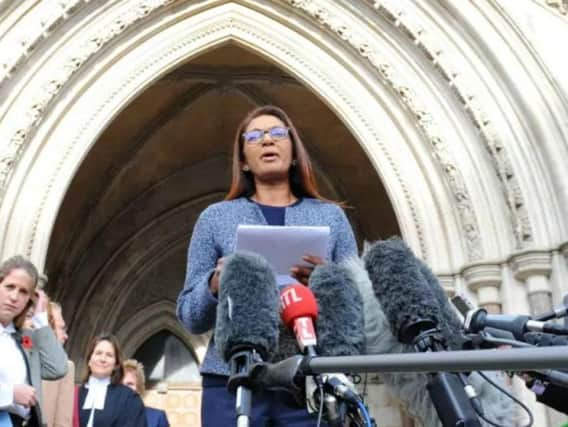Supreme Court Brexit update: Government powers to trigger Article 50 'fundamental'


Making his opening statement to the Supreme Court, Jeremy Wright argued that the decision to begin the formal exit process without a vote by MPs did not "come out of blue sky" but was based on well-established constitutional principles backed by successive Parliaments.
Addressing a panel of the UK's most senior judges, he argued the Government's use of Royal prerogative in such matters was not an "ancient relic but a… fundamental pillar of our constitutional state"
Advertisement
Hide AdAdvertisement
Hide AdHe also argued that the High Court was "wrong" to dismiss the way EU the referendum was organised as "irrelevant", stating that MPs had "definitively and deliberately" granted Government permission to use prerogative powers in the 2015 Act.
The comments marked the beginning of the latest stage of the groundbreaking legal battle over Brexit.
The highest court in the land is being asked to overturn a High Court ruling that the Prime Minister must seek MPs' approval to trigger the process of taking Britain out of the European Union.
In a decision that infuriated Brexiteers, three senior judges said Theresa May lacked power to use the royal prerogative to trigger Article 50 of the Lisbon Treaty and start the two-year process of negotiating Brexit without the prior authority of Parliament.
Advertisement
Hide AdAdvertisement
Hide AdNow 11 Supreme Court justices - a record number to sit on an appeal - will have their say regarding one of the most important constitutional cases in generations.
If the appeal is unsuccessful, and any potential further appeal to the European Court of Justice in Luxembourg also fails, the Government's plans for Brexit could be thrown into disarray.
But Mrs May has made it clear she still intends to give an Article 50 notification by the end of next March to start the leave negotiations with 27 other EU countries.
Lord Neuberger is leading a panel including Lady Hale, Lord Mance, Lord Kerr, Lord Clarke, Lord Wilson, Lord Sumption, Lord Reed, Lord Carnwath, Lord Hughes and Lord Hodge.
Advertisement
Hide AdAdvertisement
Hide AdThe hearing will be the most televised UK case ever, with the proceedings streamed on the Supreme Court website and broadcast on television.
In his opening remarks, Lord Neuberger stressed the court was aware of the "strong feelings associated with the many wider political questions surrounding the United Kingdom's departure from the European Union" - but those questions were not the subject of the appeal.
He also warned the media and others not to publish certain personal details about those involved in the case, due to the "threats of serious violence and unpleasant abuse” they have received.